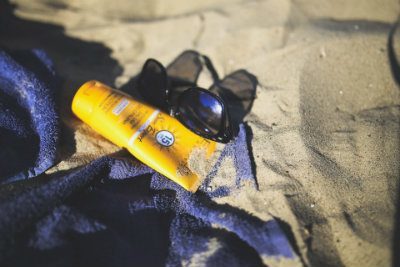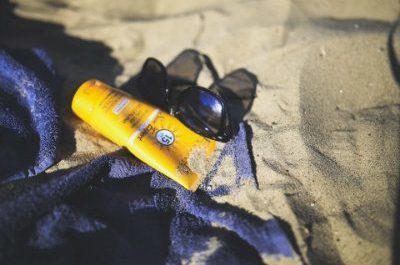The Pros And Cons Of Using Natural Sunscreen
Today, there are more options than ever before for those who find it important to choose healthy, all-natural ingredients. This is especially true when shopping for essential health and beauty products such as sunscreen. With summer knocking on our doors, have you considered the pros and cons of wearing natural sunscreen by reading some of the most important advantages and disadvantages?
Intro to Natural Sunscreen
If you’ve never heard of it, it’s crucial to understand what natural sunscreen is and isn’t. Broadly speaking, natural sunscreen is a type of sunscreen that is made from natural ingredients such as minerals and plant extracts.
Unlike chemical sunscreens, which use synthetic ingredients to absorb UV rays, natural sunscreens work by reflecting the sun’s rays away from the skin. This makes them a popular choice for people concerned about the potential health risks associated with chemical sunscreens.
Advantages And Disadvantages Of Natural Sunscreen
You care about your health, especially your skin. After all, your skin is the largest organ in your entire body. In an effort to help you make the best decision for your skin as well as your overall health, below are some of the best reasons for and against a healthier all-natural sunscreen.
Pros of Using Natural Sunscreen
One of the main advantages of using natural sunscreen is that it does not contain harmful chemicals that can be absorbed into the skin. This is especially important for people with sensitive skin or allergies who may experience irritation or other adverse reactions when using chemical sunscreens. Additionally, natural sunscreens are better for the environment, as they do not contain chemicals that can harm marine life or contribute to coral bleaching.
Another benefit of using natural sunscreen is that it can provide additional skin benefits. Many natural sunscreens contain antioxidants and vitamins that can help nourish and protect the skin. For example, some natural sunscreens contain green tea extract, which is known for its anti-inflammatory and anti-aging properties.
Cons of Using Natural Sunscreen
While there are many benefits to using natural sunscreen, there are also some potential drawbacks to consider. One of the main disadvantages of natural sunscreen is that it may not be as effective as chemical sunscreen at blocking UV rays. This is because natural sunscreens work by reflecting the sun’s rays rather than absorbing them. As a result, they may need to be reapplied more frequently to provide adequate protection.
Another potential downside of natural sunscreen is that it can be more expensive than chemical sunscreen. Natural ingredients are often more costly to source and process than synthetic ingredients. Additionally, some natural sunscreens may leave a white cast on the skin, which can be unappealing for some people.
Environmental Impact of Natural Sunscreen
Another advantage of using natural sunscreen is that it is better for the environment than chemical sunscreen. Chemical sunscreens contain ingredients such as oxybenzone and octinoxate, which have been shown to harm marine life and contribute to coral bleaching. On the other hand, natural sunscreens are biodegradable and eco-friendly, making them a more sustainable choice.
Ingredients in Natural Sunscreen
Common ingredients in natural sunscreen include zinc oxide, titanium dioxide, and plant extracts such as aloe vera and green tea. These ingredients work by reflecting the sun’s rays away from the skin rather than absorbing them. This makes them a safer and more natural alternative to chemical sunscreens.
Now that you’re familiarized with natural sunscreen and its ingredients, let’s recap chemical sunscreen and what it’s generally made of.
What Is Chemical Sunscreen Made Of?
In taking a closer look at these ingredients, you will see these are the names of some of the most popular chemicals used in conventional sunscreen brands:
- oxybenzone
- avobenzone
- octinoxate
- octisalate
- homosalate
- 4-methylbenzylidene camphor
Sadly, most of these chemicals were tested only to find hormone disruptors. These chemicals were also found to cause increased skin absorption, which is not something you want since they can potentially disrupt your body’s hormones. In comparison, natural sunscreens will often have one or more of the following active ingredients:
- Zinc oxide
- Titanium dioxide
If you have ever purchased a mineral based sunscreen, this product likely had one of the above non-toxic ingredients. However, these two minerals are often pitted together to provide a broad spectrum approach to sunburn protection without the use of harsh hormone-altering chemicals and pose little or no health concerns. Zinc oxide offers considerably more UV ray protection than titanium oxide, but the results are still more desirable than the active ingredients found in regular sunscreens.
Application Process
Unlike regular sunscreen brands that warn users to apply their product thirty or more minutes before heading into the sun, organic all-natural sunscreens begin to protect you from harmful sun rays from the moment of application. When you have a day off work and want to relax in the sunshine, or the children are clamoring to get in the water, thirty minutes can seem like too long to waste before jumping in the water, then doing it all again.
the sun, organic all-natural sunscreens begin to protect you from harmful sun rays from the moment of application. When you have a day off work and want to relax in the sunshine, or the children are clamoring to get in the water, thirty minutes can seem like too long to waste before jumping in the water, then doing it all again.
How to Choose the Right Natural Sunscreen
When choosing a natural sunscreen, it is important to consider factors such as your skin type, the level of sun exposure you will be experiencing, and any allergies or sensitivities you may have. Look for a sunscreen that contains a broad-spectrum SPF of at least 30 and is water-resistant for up to 80 minutes. Additionally, choose a sunscreen that is free from harmful chemicals and contains natural ingredients that are safe and effective.
Is Natural Sunscreen Right for You?
Natural sunscreen is a safe and effective alternative to chemical sunscreen that protects against UV rays and can help to prevent premature aging and improve skin texture and tone. While it may be more expensive than chemical sunscreen, it is a more sustainable environmental choice.
When choosing a natural sunscreen, be sure to consider your skin type, the level of sun exposure you will be experiencing, and any allergies or sensitivities you may have. With the right sunscreen, you can enjoy the sun safely and maintain healthy, youthful-looking skin for years to come.
Whether you use traditional sunscreens or their healthier and organic counterparts, always re-apply for optimal UVA and UVB protection. Most doctors recommend additional applications every two hours or every hour if you live closer to the equator. Those participating in athletic or more strenuous outdoor activities might also re-apply hourly. Whichever option you choose, make sure you use sunscreen that is good for your skin and long-term health.







